Support When Planning for the Future
Planning for the future is an exciting yet emotional time for families. Individuals with an FASD often require more support than neurotypical young people but have the same hopes for the future and need for independence.

Planning for the Future
Make sure that everyone involved in the planning has similar goals. Create a respectful, open dialogue when talking about the future. Share input and use active listening skills. Use tools that are person-centered to ensure that the individual has a voice in planning for their future.
- Proof Alliance direct support staff are trained Department of Human Services (DHS) Charting the Life Course ambassadors and use effective tools to work with families and individuals to assess the life trajectory and plan for the future
- Click here for the It’s My Choice information guide developed by the Minnesota Governor’s Council on Developmental Disabilities
Things to Consider About Your Future
For daily tasks pertaining to things like hygiene, medications, household chores and meal planning, use visual reminders, phone alarms and timers.
Whether living independently, semi-independently or in a group setting, you will need to consider:
- Security and safety
- Whether support staff and other residents have accurate information about FASD and how to support those impacted
- House rules and guidelines (For example, you may want to establish a plan for different scenarios – how to say no if someone asks to stay for an extended period of time without paying rent, or what time visitors need to leave)
When it comes to budgeting and money management, you will need to consider:
- Whether an external person needs to help manage paychecks, savings and daily expenditures
- The risks of credit cards and online ordering
Make it easy to get feedback. Identify 3 “safe” individuals to call when input for decisions is needed.
Help your young adult find appropriate supports for their needs. Use our resource directory to find FASD competent providers.
Someone with an FASD may need support with things like job coaching, vocational rehabilitation services and transportation. Encourage them to ask questions like:
- Based on my interests, what type of job is a good fit?
- What types of accommodations can the employer provide?
- Is the schedule consistent and predictable?
- Are the tasks manageable and similar each day?
Developing positive relationships with peers may present challenges. Plan ahead by:
- Identifying people and groups that may be a good fit based on interests, determine appropriate groups in the community
- Discussing safety concerns (internet dating, meeting online friends, etc.)

State and County Support Services
There are several support services available through the county and state for individuals who meet eligibility requirements.
- Personal care assistance (PCA) services help a person with day-to-day activities in their home and community.
- Semi-independent Living Services (SILS) include training and assistance to people in managing money, preparing meals, shopping, personal appearance, hygiene and other activities needed to maintain and improve the capacity of a person with a diagnosis of developmental disability to live in the community.
- Vocational Rehabilitation Services (VRS) can help individuals with a disability prepare for, find and keep a job, and live as independently as possible.
- There are many community-based agencies that provide employment support to individuals with disabilities. Visit the Proof Alliance Resource Directory for FASD competent providers.
What can we help
you with today?
I want:

